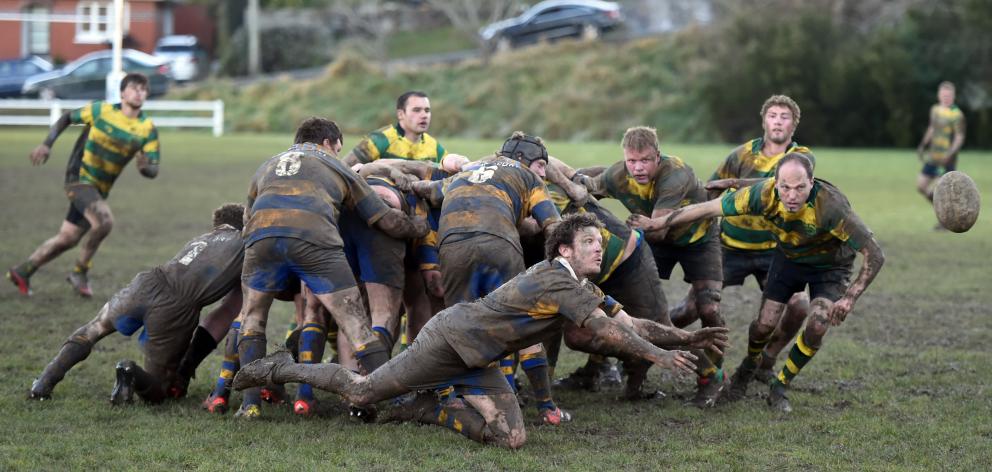
That is resulting in sports teams leaving Dunedin grounds resembling mud wrestlers, rather than rugby or football players, as they battle out their winter sports matches in the most trying of conditions.
MetService rainfall figures show that before last weekend's sport, Dunedin had 607.8mm of rain for the year.
The previous time the city had that much rain was in 2009, when up until the same date 664.6mm fell.
The situation is a nightmare for the Dunedin City Council, which is getting plenty of feedback that its grounds are in a bad state and what it should be doing about it, DCC acting parks operations manager Gareth Jones.
"It looks from the outside that the grounds should be drier as a result of maintenance or renovation work.
"We are doing all we can with it, but it is just extremely wet.''
Finding the answer that will fix the sporting ground's wet and muddy conditions is also very simple.
The turf will only improve when it is not being used, Jones said.
"There is only so much that can be done throughout the winter ... mid-winter, if the grass is all cut up, there is not an awful lot of work you can do in that time.
"That is something that comes as a surprise to some people ... it does not matter how much money you throw at something, mid-winter, when there is no grass cover, there is not a lot you can do without resting it for a long time.''
Given the amount of sporting action the grounds have seen and the large amount of rain they have received, Dunedin's sports fields were standing up well, Jones said.
The conditions have resulted in a raft of ground closures, which Jones describes as an investment in their short-term future.
"We are trying to close the grounds because we want to preserve them to a level they can be used throughout the winter, not because we want them to look pristine and nobody use them.
"We want to get people active and we want to get people out there. We want to have safe conditions that people can use throughout the winter.
"The battle sometimes is that some people think we are trying to close them too early, but it is purely based on the educated guys out on the field saying that the grounds need to be closed at this point or they are not going to survive well throughout the winter.''
Once winter sports have finished, the council's parks operations team would start on an intensive renovation programme to get their muddy sports grounds back into shape.
Long-term decisions about where to invest in turf upgrades and the installation of drainage systems at more grounds, were being worked on as well.
Jones said he was confident grounds used for the cricket season, including the University Oval, would bounce back and in time for its start, he said.












